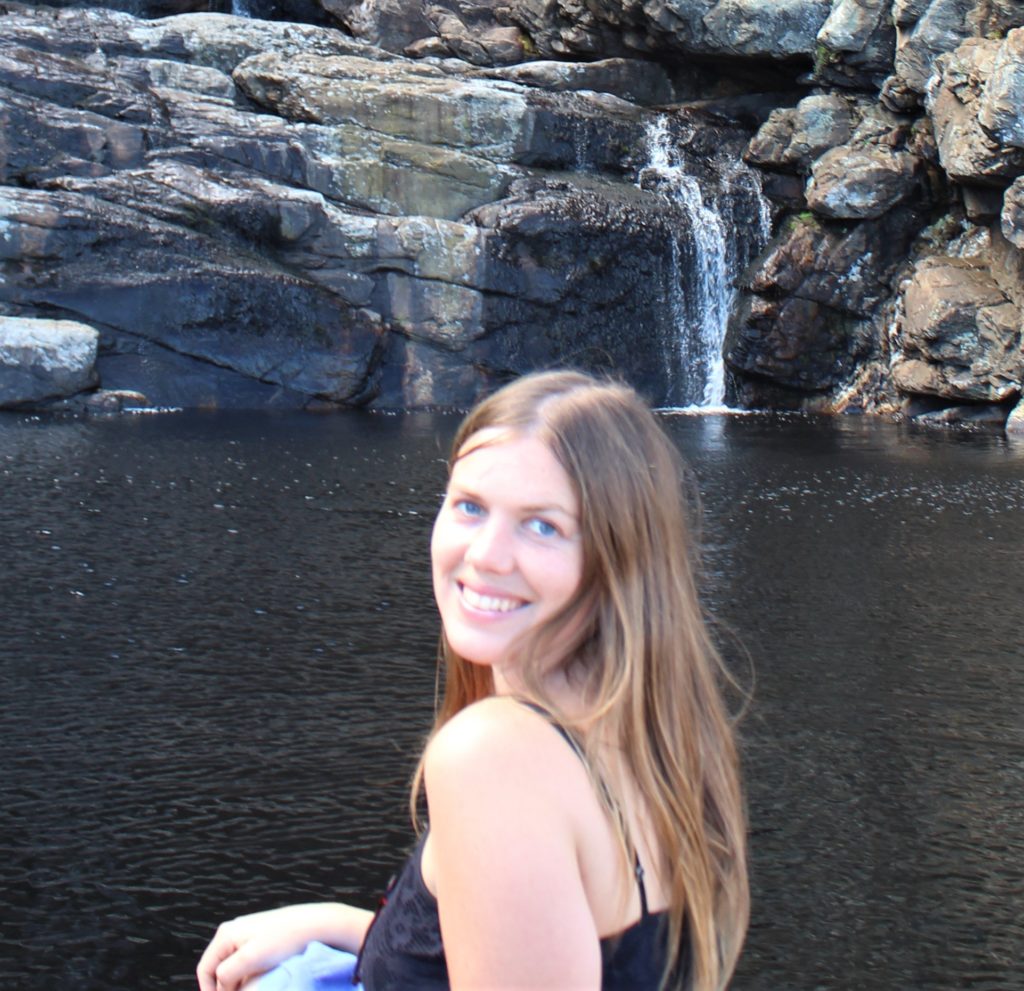Ella-Kari Muhl

About
Ella-Kari Muhl is a Masters student from the University of Cape Town. She completed her Honours in 2016 attaining a Distinction in her research. Her thesis focuses on impending areas of importance in South Africa. It examines issues of governance, access and benefit sharing in protected areas, through a livelihoods lens. Born and raised in Cape Town, Ella worked abroad for 5 years before coming home to study further. Her experience abroad lead to her interest in indigenous communities and their connection to the environment. She sees human wellness and marine sustainability as being linked. Her research hopes to have broad implications in both theory and practice as it focuses on the exclusion of indigenous communities from protected areas in Southern Africa and what implication this has for communities’ livelihoods and food security. She employs a mixed methodology in tandem with qualitative analysis, drawing on historical narratives.
She has a strong interest in food security, customary practices, governance, community-based conservation, participatory research methods and social justice. She hopes to upgrade her Masters to a PhD in 2018.
Place
Ella’s research takes place in the communities adjacent to the Tsitsikamma National park, which are excluded from access to the area by the zoning of the Marine Protected Area (MPA). Her research focuses on issues of access and exclusion in South African National Parks to indigenous communities. These communities, relocated outside of the national parks under Apartheid, continue to be excluded in post-democratic South Africa. The aptly named “forgotten people” of the Tsitsikamma area are her research focus. Their exclusion from the oldest Marine Protected Area (MPA) in Africa has led to a decline in food security, decrease in health and increase in anti-social behavior and substance abuse.
Research
This research is surprising as some indigenous communities in the Tsitsikamma have not been researched before. Worldwide, coastal resources are acknowledged to provide food security and livelihood support. However, the implementation of the protected areas without the consideration of human dimensions further marginalizes indigenous communities in a flawed system of governance lacking inclusive policy.
The recent re-opening of sections of the Tsitsikamma National Park in December 2016 has also prompted an examination of policy processes and institutional structures and this will further be examined through a livelihood lens.
This research project considers how communities are excluded from coastal resources through poor policy and post-apartheid power structures still present in political processes affecting indigenous communities. It aims to enhance knowledge on marine and coastal resources and their benefits to coastal communities, by examining the complex and dynamic systems governing livelihoods and access within protected areas.
Providing information on the nature of livelihoods and the cultural associations with natural resources in indigenous communities could lead to co-operation and a practical agreement that is beneficial to both local communities and the Departments of Environmental Affairs, and Forestry and Fisheries in Southern Africa. This is especially poignant as there has been recent conflict over food security and customary rights in protected areas.
This research aims to be interdisciplinary and policy significant, combining local ecological knowledge from communities with quantitative scientific data methods to inform policy and practice within complex human-ecological systems. The implication of this research will be transnational, as issues of food security, customary practices and systems of governance are increasingly gaining momentum in developing coastal communities.


